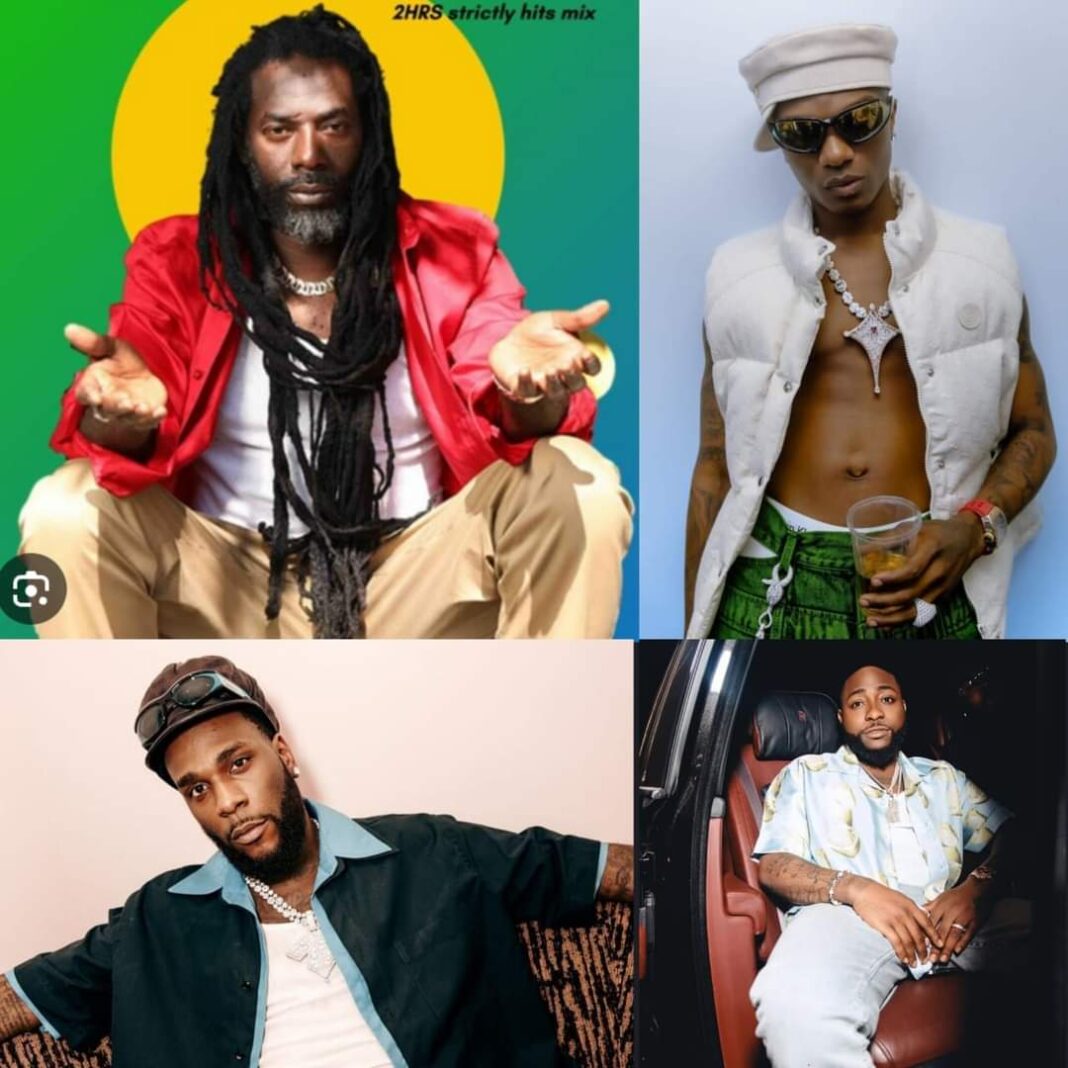In a candid critique that has sparked widespread discussion, legendary Jamaican reggae artist Buju Banton has called out Afrobeats musicians for focusing on themes that he believes do little to uplift the African continent. In a series of pointed remarks, Banton lamented the direction that Afrobeats has taken, expressing disappointment that the genre, which has become a global sensation, seems more preoccupied with themes of love, sex, and wealth than with addressing the pressing issues facing Africa.
“Afrobeats Lacks Substance”
“Afrobeats is a very great genre,” Banton began, acknowledging the musical prowess and global appeal of the genre. However, he quickly shifted to critique, stating, “But all African artists are singing about is women, sex, money lifestyle, and nothing more.” This statement has resonated with many who feel that while Afrobeats has indeed placed African music on the global map, it has not done enough to reflect the struggles and aspirations of African people.
Banton’s frustration seems to stem from a perception that Afrobeats, despite its popularity, is failing to serve as a vehicle for social change. “Afrobeats is not uplifting Africa nor freeing the minds of the people,” he argued. He challenged listeners to identify an Afrobeats song that genuinely inspires hope or galvanizes people to confront the numerous challenges facing the continent. “Tell me one Afrobeats song that can uplift us! Kenya is suffering, Sudan, South Sudan, South Africa, and many other African countries are going through crises. But which one of these Afrobeats songs can I relate to that will uplift me and make me believe that I’m in a struggle, and we’re gonna be better in the struggle?”
The Role of Music in Times of Crisis
Buju Banton’s words cut deep, especially in the context of the current socio-political climate in many African countries. From the ongoing conflict in Sudan to the economic difficulties in South Africa and the political instability in Kenya, many African nations are indeed grappling with significant challenges. In such times, music has historically served as a powerful tool for resistance, healing, and unity. Banton, a stalwart of reggae—a genre that has long been associated with messages of peace, love, and social justice—seems to be urging Afrobeats artists to adopt a similar approach.
“Yes, the artists are making money,” Banton conceded, acknowledging the commercial success that many Afrobeats artists have achieved. However, he questioned the long-term legacy of these musicians: “What would be said of them when they’re gone? When they couldn’t use their music to uplift their people.” His critique touches on the age-old debate about the responsibility of artists to their societies, particularly in regions where music has often been a voice for the voiceless.
A Call for Conscious Music
Buju Banton’s call to action is clear: Afrobeats artists should use their platform to speak on behalf of their people, to highlight the struggles, and to inspire hope. “All Afrobeats artists are singing about is ‘My first date’, ‘My first love’, ‘My first sex’, and nothing more,” he said, pointing to the perceived triviality of the themes that dominate the genre. For Banton, the essence of music lies in its ability to connect with the lived experiences of its audience, particularly in times of hardship.
His remarks have sparked a broader conversation about the content of contemporary African music and the role that musicians should play in society. Some have echoed Banton’s sentiments, arguing that Afrobeats could do more to reflect the complexities of life on the continent. Others, however, have defended the genre, pointing out that music can serve many purposes, including entertainment and escapism, and that there is room for both light-hearted and serious themes.
The Future of Afrobeats
As Afrobeats continues to evolve, Buju Banton’s challenge serves as a reminder of the power of music to influence and inspire. His call for more conscious, socially aware music may push some artists to explore new themes and to use their music as a tool for change. Whether or not this will lead to a significant shift in the genre remains to be seen, but Banton’s words have undoubtedly sparked an important conversation about the potential of Afrobeats to do more than just entertain.
In a world where music often transcends borders and cultures, the responsibility of artists to use their voice for the greater good is a topic that will continue to resonate, not just within Africa, but globally. As the debate continues, one thing is certain: Buju Banton’s challenge will not be easily forgotten, and it may just be the catalyst for a new era of Afrobeats—one that speaks not just to the rhythm of the continent, but to its heart and soul.

